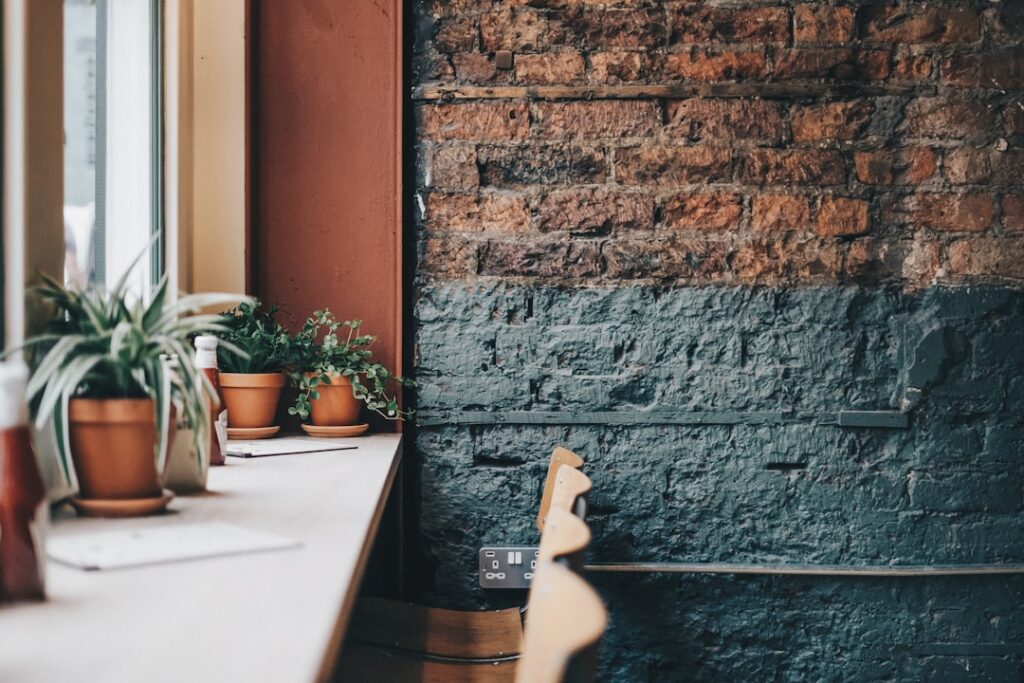Dubai has emerged as a significant player in the global manufacturing landscape, transforming from a primarily trade and tourism-focused economy into a multifaceted industrial powerhouse. The city’s strategic geographical location, positioned at the crossroads of Europe, Asia, and Africa, has made it an attractive destination for businesses looking to tap into diverse markets. With its state-of-the-art infrastructure, robust logistics capabilities, and a business-friendly environment, Dubai is increasingly recognized as a manufacturing hub that offers immense potential for growth and innovation.
The emirate’s commitment to diversifying its economy has led to substantial investments in various sectors, including manufacturing. The Dubai Industrial Strategy 2030 aims to enhance the emirate’s manufacturing capabilities by focusing on advanced technologies and sustainable practices. This strategic vision not only seeks to increase the contribution of the manufacturing sector to the GDP but also aims to position Dubai as a global center for innovation and advanced manufacturing.
As a result, the city is witnessing a surge in manufacturing offices, attracting both local and international companies eager to capitalize on the opportunities presented by this dynamic environment.
Key Takeaways
- Dubai has emerged as a prominent manufacturing hub in the Middle East, attracting companies from various industries.
- The growth of manufacturing offices in Dubai has been fueled by the city’s strategic location, business-friendly environment, and advanced infrastructure.
- Setting up manufacturing offices in Dubai offers advantages such as access to a skilled workforce, tax incentives, and proximity to key markets in the region.
- The government of Dubai provides strong support and incentives for manufacturing offices, including tax exemptions, grants, and assistance with business setup.
- Dubai’s manufacturing sector benefits from world-class infrastructure and logistics, including modern ports, airports, and free trade zones.
The Growth of Manufacturing Offices in Dubai
Favorable Business Environment
Over the past decade, Dubai has seen a significant increase in the number of manufacturing firms setting up operations within its borders. This trend is particularly evident in sectors such as electronics, textiles, food processing, and pharmaceuticals, where companies are leveraging Dubai’s strategic advantages to enhance their production capabilities.
Specialized Industrial Zones
Moreover, the establishment of specialized industrial zones, such as Dubai Industrial City and Jebel Ali Free Zone, has further fueled this growth. These zones offer tailored facilities and services designed to meet the unique needs of manufacturers, including access to utilities, logistics support, and streamlined regulatory processes.
Increased Productivity and Competitiveness
As a result, businesses can operate more efficiently and effectively, leading to increased productivity and competitiveness in both regional and global markets.
Advantages of Setting up Manufacturing Offices in Dubai

Setting up manufacturing offices in Dubai presents numerous advantages that appeal to both local and international businesses. One of the most significant benefits is the tax environment; Dubai offers a zero percent corporate tax rate for most industries, which allows companies to maximize their profits without the burden of heavy taxation. Additionally, there are no personal income taxes, making it an attractive destination for skilled professionals seeking employment in the manufacturing sector.
Another advantage is the access to a diverse and skilled workforce. Dubai’s cosmopolitan nature attracts talent from around the world, providing manufacturers with a pool of skilled labor across various disciplines. This diversity not only enhances creativity and innovation within manufacturing processes but also allows companies to cater to a wide range of consumer preferences and market demands.
Furthermore, the emirate’s commitment to education and vocational training ensures that the workforce remains competitive and well-equipped to meet the evolving needs of the manufacturing industry.
Government Support and Incentives for Manufacturing Offices
The government of Dubai has implemented various initiatives aimed at supporting the growth of the manufacturing sector. Through programs such as the Dubai Industrial Strategy 2030, authorities are actively promoting investment in advanced manufacturing technologies and encouraging companies to adopt innovative practices. This strategy includes initiatives to enhance research and development capabilities, foster collaboration between industry and academia, and promote entrepreneurship within the manufacturing space.
In addition to strategic initiatives, the government offers a range of incentives designed to attract manufacturers. These include financial support through grants and subsidies for companies investing in advanced technologies or sustainable practices. Moreover, streamlined licensing processes and reduced bureaucratic hurdles make it easier for businesses to establish their operations in Dubai.
The establishment of one-stop-shop services within free zones further simplifies administrative procedures, allowing manufacturers to focus on their core operations rather than navigating complex regulatory frameworks.
Infrastructure and Logistics for Manufacturing in Dubai
Dubai boasts world-class infrastructure that is crucial for supporting its manufacturing sector. The emirate’s transport network includes modern highways, an extensive metro system, and one of the busiest airports in the world—Dubai International Airport—facilitating efficient movement of goods and personnel. Additionally, Jebel Ali Port is one of the largest ports in the region, providing manufacturers with direct access to global shipping routes and enabling swift import and export operations.
Logistics capabilities are further enhanced by advanced warehousing solutions and distribution centers strategically located throughout the emirate. Companies can benefit from integrated logistics services that streamline supply chain management, reduce lead times, and lower transportation costs. The availability of cold storage facilities is particularly advantageous for food manufacturers who require temperature-controlled environments for their products.
Overall, Dubai’s infrastructure not only supports efficient manufacturing processes but also enhances competitiveness in international markets.
Challenges and Considerations for Manufacturing Offices in Dubai

Despite its many advantages, establishing manufacturing offices in Dubai is not without challenges. One significant consideration is the cost of real estate, which can be relatively high compared to other regions. Companies must carefully evaluate their budgetary constraints when selecting locations for their manufacturing operations.
Additionally, while Dubai offers a skilled workforce, there may be challenges related to labor market dynamics, including competition for talent and varying levels of skill among workers. Another challenge is navigating regulatory compliance within the manufacturing sector. While the government has made strides in simplifying processes, manufacturers must still adhere to various local laws and international standards related to quality control, safety regulations, and environmental sustainability.
Companies need to invest time and resources into understanding these requirements to avoid potential legal issues or operational disruptions.
Key Industries and Sectors in Dubai’s Manufacturing Hub
Dubai’s manufacturing hub encompasses a diverse range of industries that contribute significantly to its economic landscape. The electronics sector has seen substantial growth due to increasing demand for consumer electronics and smart devices. Companies involved in electronics manufacturing benefit from Dubai’s strategic location for sourcing components from Asia while serving markets across Europe and Africa.
The food processing industry is another vital sector within Dubai’s manufacturing landscape. With a growing population and increasing demand for high-quality food products, manufacturers are focusing on innovative processing techniques and sustainable practices. The emirate’s emphasis on food security has led to investments in food technology and production facilities that prioritize quality and safety standards.
Additionally, sectors such as textiles, chemicals, pharmaceuticals, and construction materials are thriving within Dubai’s manufacturing ecosystem. Each industry presents unique opportunities for growth and collaboration among manufacturers seeking to leverage shared resources or expertise.
Opportunities for Collaboration and Networking in Dubai’s Manufacturing Industry
Dubai’s vibrant business environment fosters collaboration among manufacturers through various platforms and initiatives aimed at networking and knowledge sharing. Industry-specific trade shows and exhibitions provide opportunities for companies to showcase their products while connecting with potential partners or clients. Events such as Arabplast or Gulfood attract participants from around the world, facilitating discussions on trends, innovations, and best practices within specific sectors.
Moreover, organizations like the Dubai Chamber of Commerce play a crucial role in promoting collaboration among businesses by offering networking events, workshops, and seminars focused on industry developments. These platforms enable manufacturers to build relationships with suppliers, distributors, and other stakeholders essential for their operations. By fostering a culture of collaboration, Dubai enhances its position as a leading manufacturing hub where businesses can thrive through shared knowledge and resources.
Sustainability and Green Initiatives in Dubai’s Manufacturing Sector
Sustainability has become a central theme within Dubai’s manufacturing sector as companies increasingly recognize the importance of environmentally responsible practices. The government has set ambitious targets for reducing carbon emissions and promoting sustainable development across all industries. Manufacturers are responding by adopting green technologies and practices that minimize waste generation, conserve energy, and reduce their overall environmental footprint.
For instance, many manufacturers are investing in renewable energy sources such as solar power to meet their energy needs sustainably. Additionally, initiatives aimed at recycling materials or utilizing eco-friendly packaging are gaining traction among companies looking to enhance their sustainability credentials. The emphasis on sustainability not only aligns with global trends but also appeals to consumers who prioritize environmentally conscious products.
Future Outlook for Manufacturing Offices in Dubai
The future outlook for manufacturing offices in Dubai appears promising as the emirate continues to position itself as a global leader in innovation and advanced manufacturing practices. With ongoing investments in technology infrastructure—such as artificial intelligence (AI), robotics, and automation—manufacturers can expect enhanced efficiency and productivity levels that will drive competitiveness in both local and international markets. Furthermore, as global supply chains evolve post-pandemic, there is an increasing emphasis on regional production capabilities that can respond swiftly to market demands.
Dubai’s strategic location combined with its robust logistics infrastructure positions it favorably as companies seek to establish more resilient supply chains closer to key markets.
The Potential of Dubai as a Leading Manufacturing Hub
Dubai’s transformation into a leading manufacturing hub is underpinned by its strategic advantages—ranging from favorable economic policies to world-class infrastructure—that create an environment conducive to business growth. As manufacturers continue to explore opportunities within this dynamic landscape, they will find a wealth of resources designed to support innovation while addressing challenges related to sustainability and regulatory compliance. The emirate’s commitment to fostering collaboration among industry players further enhances its appeal as a destination for manufacturing investment.
With an eye toward future developments in technology and sustainability practices, Dubai is poised not only to maintain its status as a regional leader but also to emerge as a key player on the global stage in advanced manufacturing sectors.
If you are looking to create productive office workstations in Dubai, you may want to consider incorporating modern office design trends. One key element to consider is whether to use standing desks or height-adjustable desks. According to a recent article on officeinterior.ae, both options have their benefits and can contribute to a more efficient and comfortable work environment. By combining these design trends with ergonomic furniture and efficient layout planning, you can create a workspace that promotes productivity and employee well-being.


